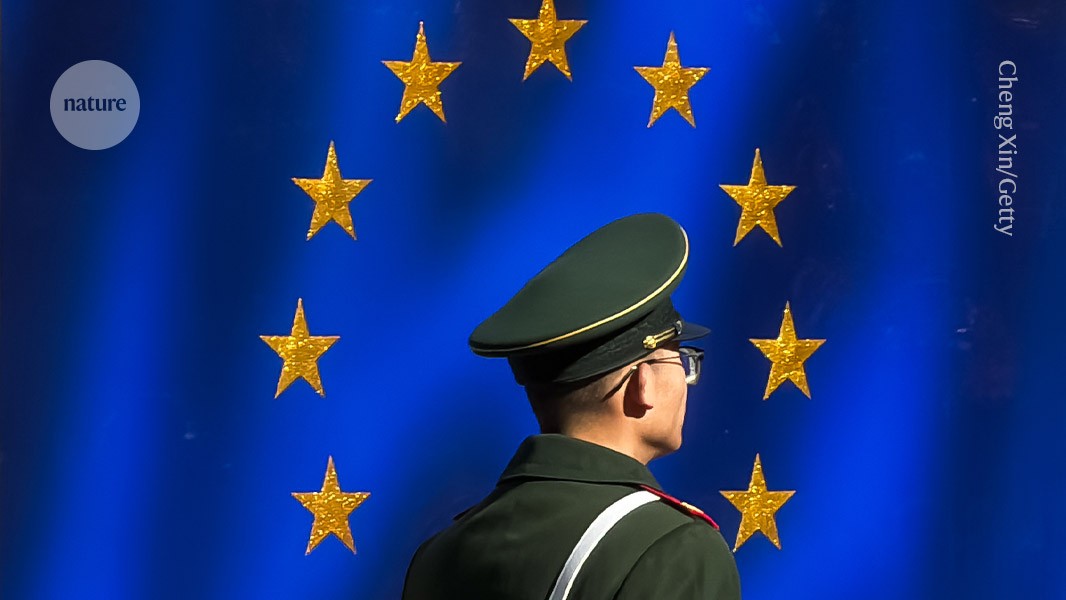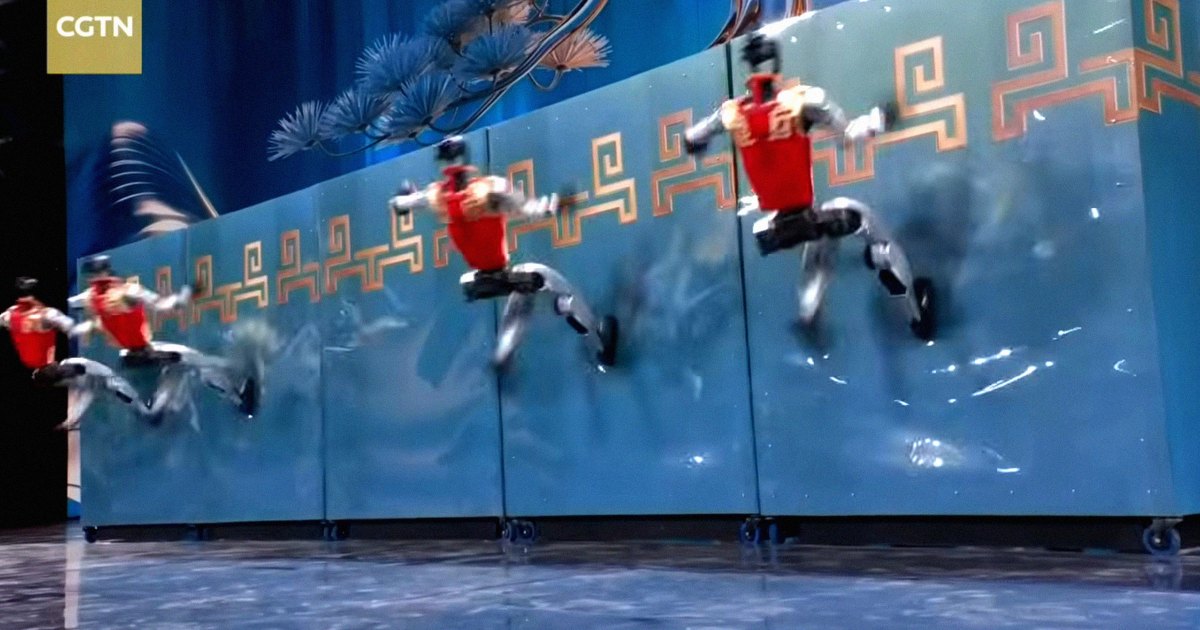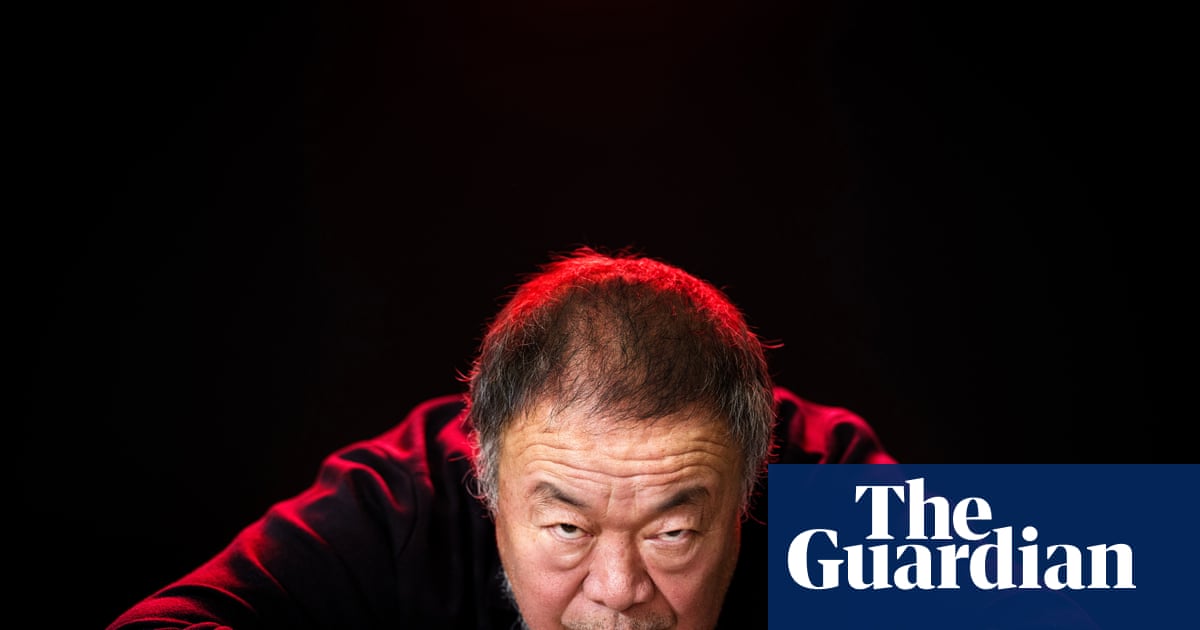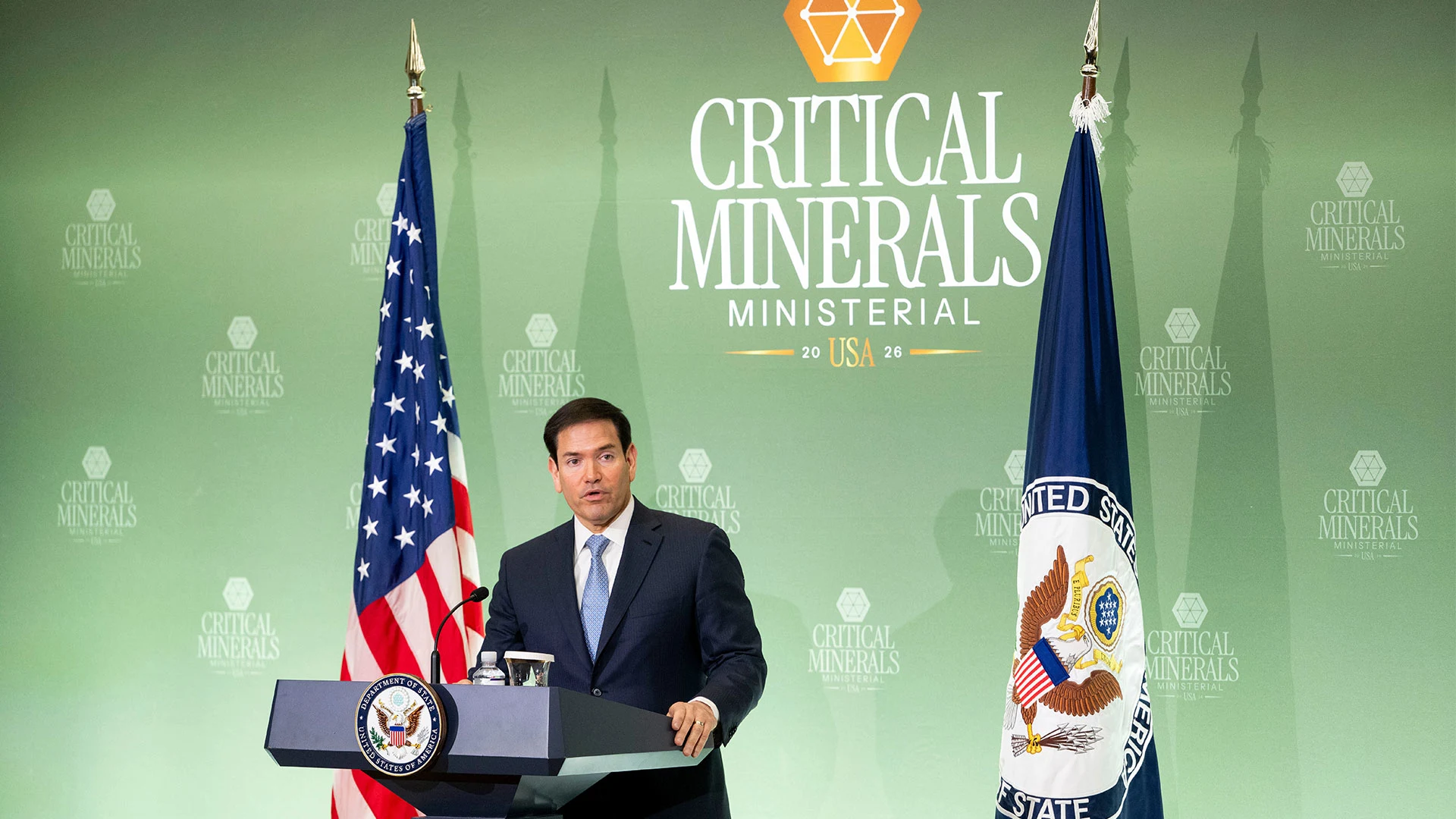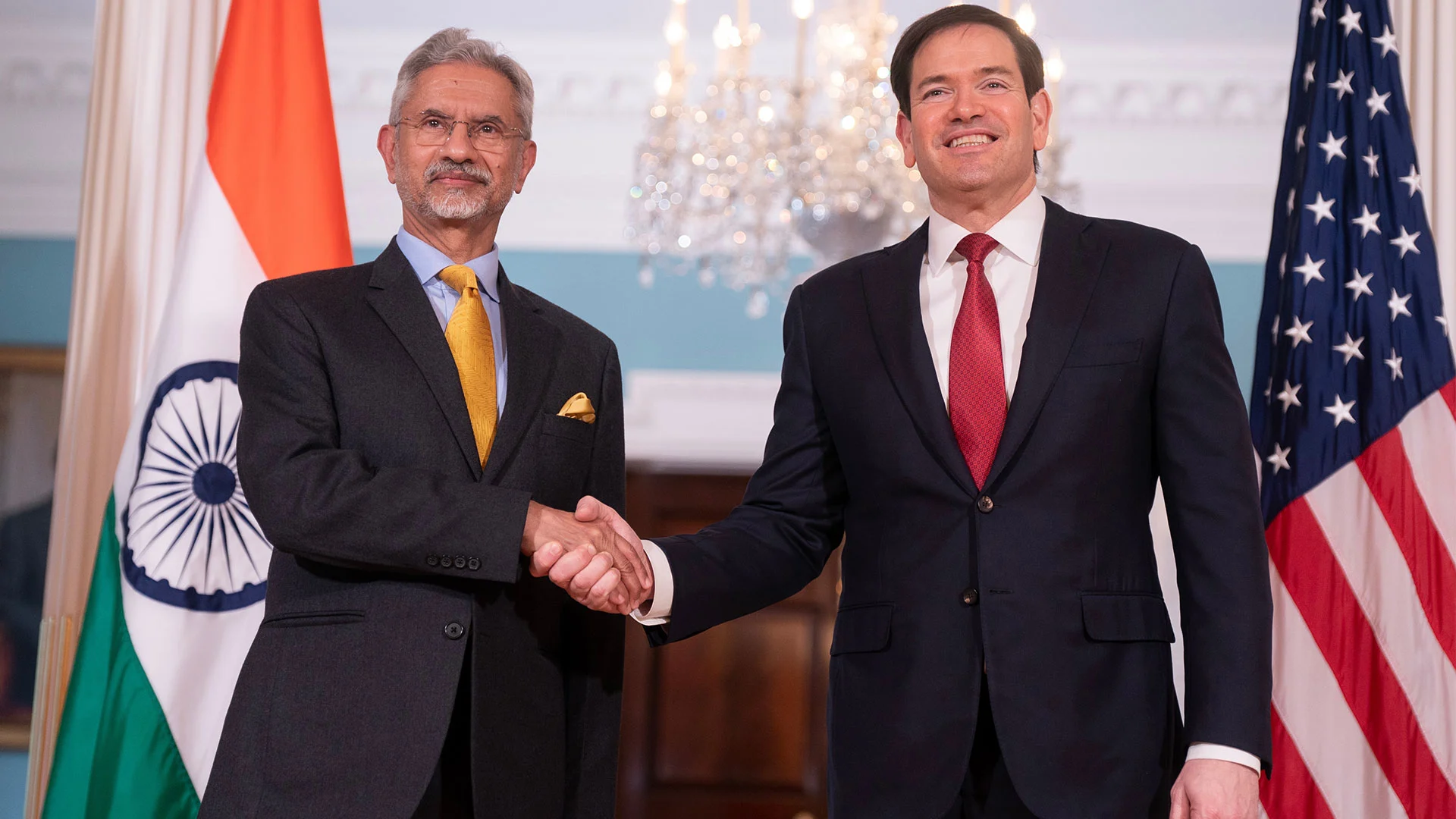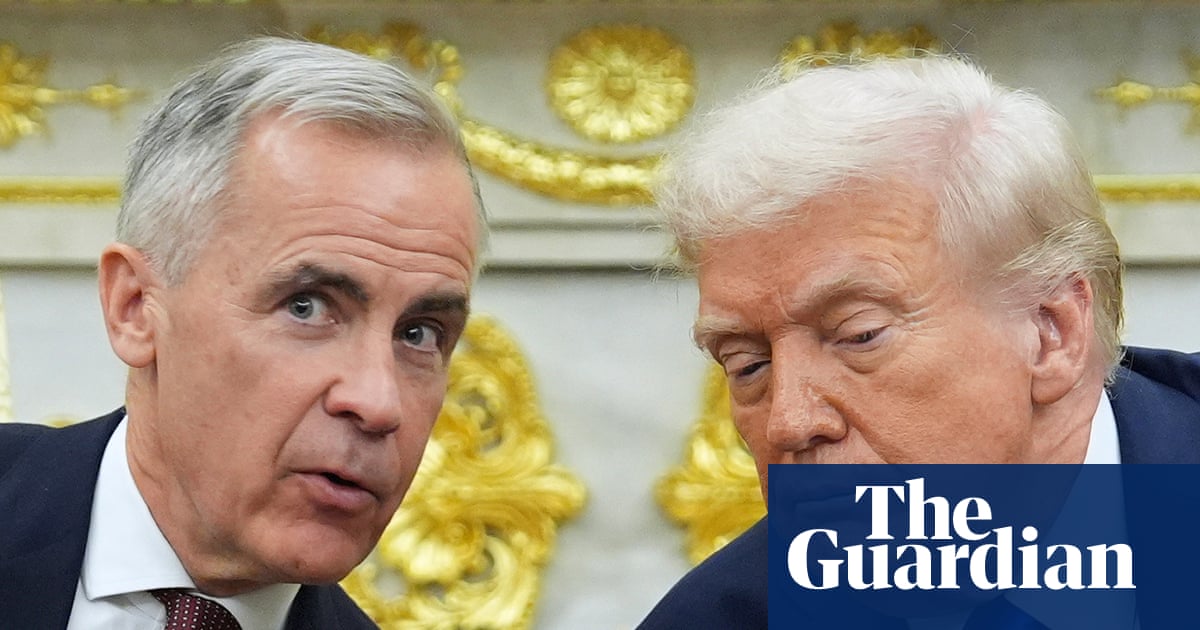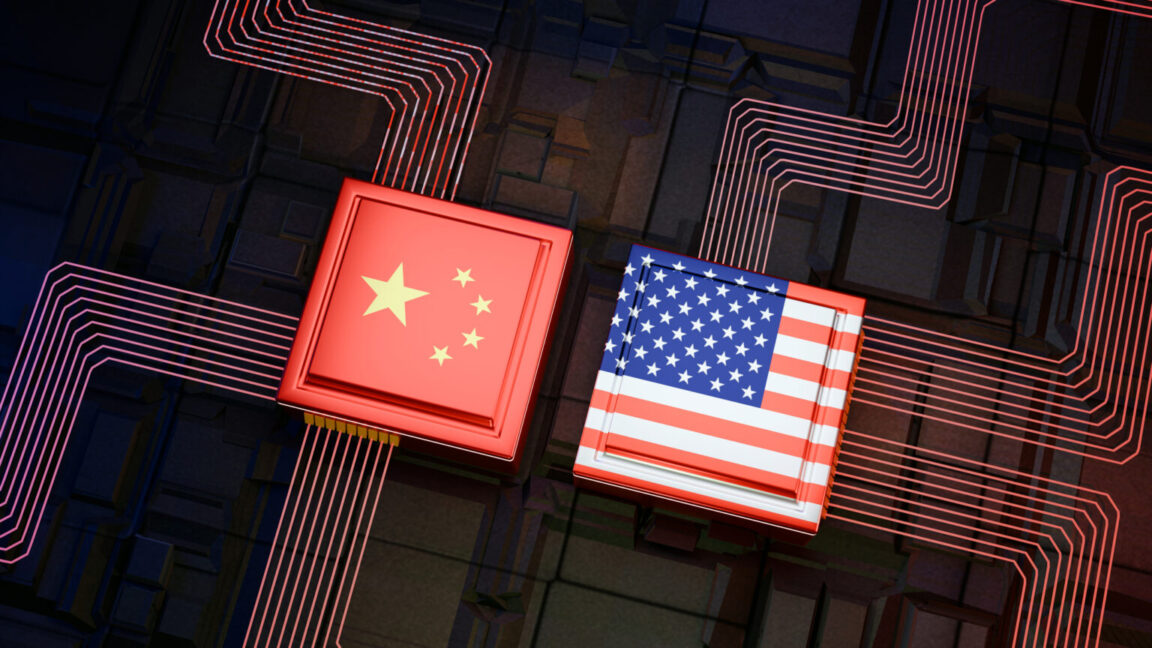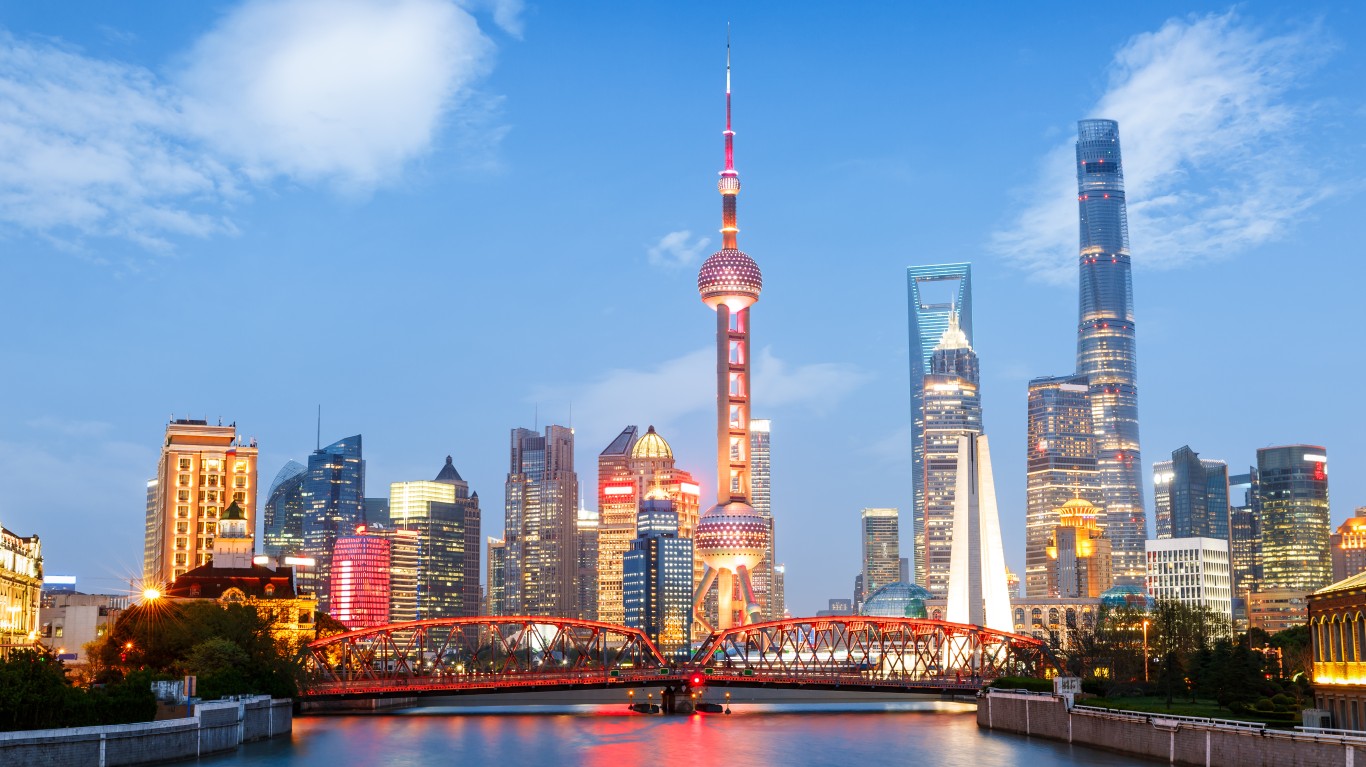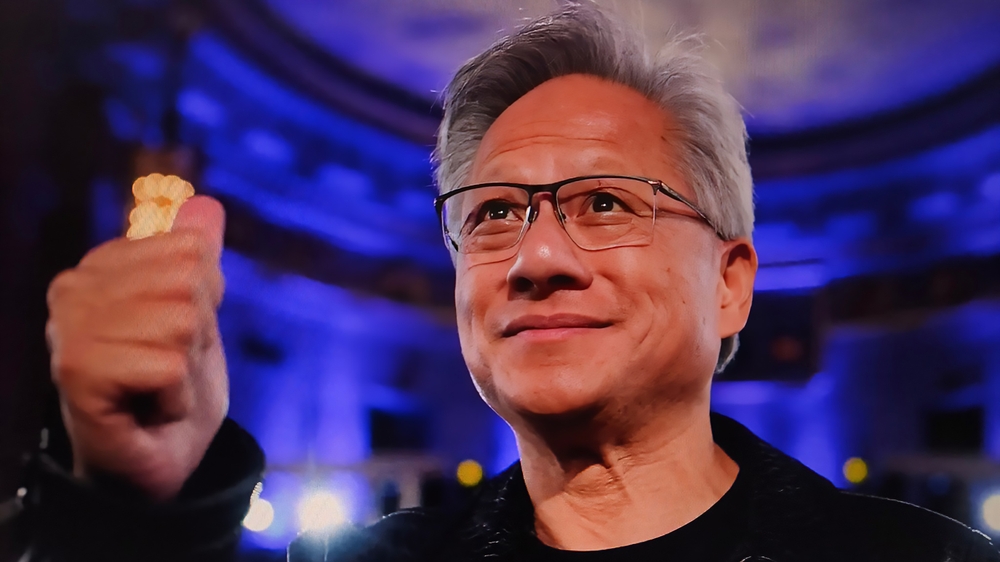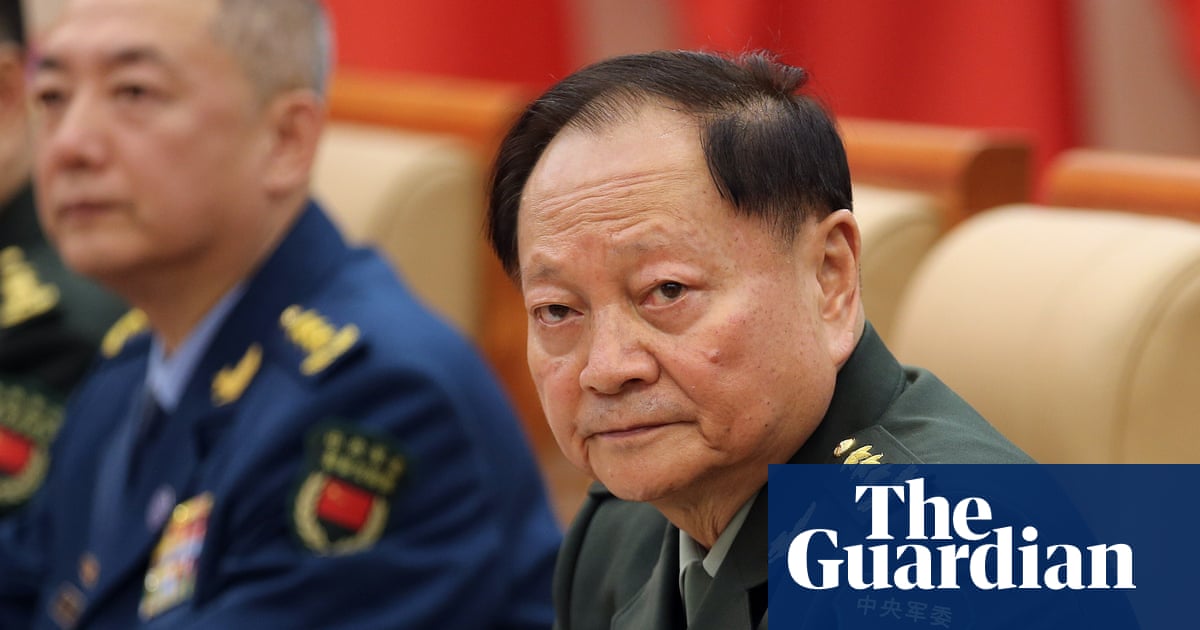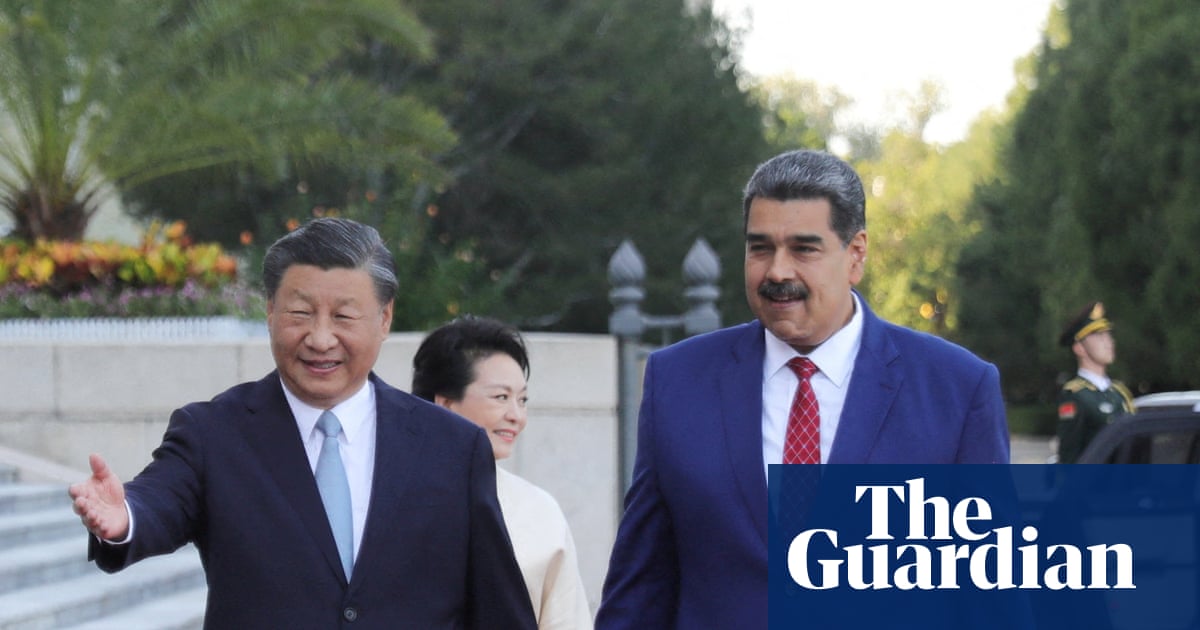#china
#china
[ follow ]
#national-security #export-controls #espionage #russia #geopolitics #nvidia #semiconductors #trade-policy
fromwww.aljazeera.com
1 week agoHas BRICS given up on challenging Western economic dominance?
Jim O'Neill, the economist who coined the term BRIC' 25 years ago, argues that the group is losing its relevance. At its peak, the BRICS coalition of economies Brazil, Russia, India, China and South Africa was seen as a serious attempt to move away from the United States dollar and the domination of Western economic institutions like the World Bank, Group of Seven (G7), and International Monetary Fund (IMF).
World news
fromwww.scientificamerican.com
1 week agoChina is reportedly testing a new airborne wind turbine
Researchers in China have reportedly tested a new, gravity-defying wind turbine system that they say could generate power from the airspace above cities. The turbine is called the S2000 Stratosphere Airborne Wind Energy System, or SAWES. Held up by what is essentially a helium blimp, the machine reportedly generated 385 kilowatts of electricity from 2,000 meters (more than 6,500 feet) above the city of Yibin in China's province of Sichuan, according to a recent Euronews report.
Science
fromEngadget
2 weeks agoTexas AG sues TP-Link over purported connection to China
TP-Link is no longer owned by a Chinese company and its products are assembled in Vietnam, but Paxton's lawsuit claims that because the company's "ownership and supply-chain are tied to China" it's subject to the country's data laws, which require companies to comply with requests from Chinese intelligence agencies. The lawsuit also says that firmware vulnerabilities in TP-Link's hardware have already "exposed millions of consumers to severe cybersecurity risks."
Information security
fromSilicon Canals
2 weeks agoRWS Wins 'Outstanding IP Service Team in China' Award for Fourth Straight Year - Silicon Canals
Sustained recognition reflects strong local expertise and expanding IP capabilities across the region MAIDENHEAD, England-(BUSINESS WIRE)-RWS (RWS.L), a global AI solutions company, has been named Outstanding IP Service Team in China 2025 at the Enterprise IP Strategy Forum and Annual Conference of In-house IP Managers in Beijing. The recognition marks the fourth consecutive year that RWS's team in China has received the award, following wins in 2022, 2023 and 2024.
Business
fromwww.mercurynews.com
2 weeks agoApplied Materials to pay $252.5 million to settle US probe
Applied Materials Inc. will pay $252.5 million to settle a US Commerce Department investigation into improper exports to China, ending a yearslong saga for the largest American supplier of chipmaking machinery. The agreement resolves allegations by the Commerce Department's Bureau of Industry and Security that certain shipments to China between November 2020 and July 2022 didn't comply with export regulations, the company said in a statement Wednesday.
Silicon Valley
fromTheregister
3 weeks agoLawmakers want tighter chip tool curbs on China
The US has spent the better part of a decade now trying to kneecap China's domestic semiconductor industry by limiting access to key chipmaking technologies like extreme and deep ultraviolet (EUV / DUV) lithography. However, US export policy under the past two administrations has largely targeted specific companies like China's Semiconductor Manufacturing International Corp (SMIC), rather than blocking sales at a country level.
US politics
fromwww.dw.com
4 weeks agoChina: Two journalists reportedly held after exposing graft
Two independent journalists were detained by Chinese officials after they published a report alleging corruption by a local official in southwestern China, rights group Reporters Without Borders (RSF) said on Tuesday, condemning the incident. Police in Chengdu said they were investigating a 50-year-old man surnamed Liu and a 34-year-old surnamed Wu on suspicion of making "false accusations" and conducting "illegal business operations." Authorities said they were placed under "criminal coercive measures," a term typically referring to detention.
World news
fromFuturism
1 month agoChinese Adults Taking Strange AI Devices to Bed With Them
Among them is the country's embrace of human-like AI systems, which are increasingly being embedded in cuddly, commercial, transactable toys - for adults, strikingly, in addition to children - at the same time that state regulators are considering a broader crackdown on that exact type of tech. New reporting by China Daily reveals the rise of AI companion toys among adults in China, a trend emerging as more of the country's citizens live alone than ever before.
Artificial intelligence
fromEntrepreneur
1 month agoThe Only Crew with Access to a $450 Million 'Gold Rush'
But after decades of outsourcing tungsten production, the federal government has now begun restricting imports. United States Tungsten founders Stacy Hastie and Randy Waterfield saw this coming. They're reviving what was once America's largest tungsten mine, the Tungsten Queen. It's a site holding an estimated 1 million tons of tungsten with an in-ground value approaching $450 million, the company says. And it says it is already in talks with the U.S. Government.
Venture
Artificial intelligence
fromBusiness Insider
1 month agoWe rode in dozens of driverless robotaxis in China. They're far from perfect, but they're ahead of most of the world.
China operates large, active robotaxi services—Baidu Apollo, Pony.ai, and WeRide—offering real driverless rides amid complex street conditions and pursuing global expansion.
fromwww.theguardian.com
1 month agoThe Guardian view on China's military purge: the risks grow in an age of strongmen | Editorial
Sir Keir Starmer is only one of the middle power leaders trekking to Beijing to renew relations. No one has forgotten China's increasing international forcefulness, its handling of the pandemic and its closer relations with Russia as war engulfed Ukraine. But the wildness of Donald Trump's first year back in power is spurring Canada, France and others to hedge their bets. This, not whisky tariff cuts, is what the British prime minister sought.
World news
fromwww.dw.com
1 month agoMyanmar marks bitter five-year anniversary of 2021 coup
"The early-2024 speculation about regime collapse is clearly all in the rearview mirror," said Anthony Davis, an analyst with the Janes defense and security publications. Over the past year, the military has reclaimed key towns and trade routes in the northeast that had fallen to a trio of armed groups. It has also rebuilt battalions depleted by death and desertion and conducted phased elections, which concluded on Sunday. "They are in the best position since the coup, said Kyaw Htet Aung, head of conflict, peace and security research at the Institute for Strategy and Policy-Myanmar (ISP-Myanmar).
World news
Canada news
fromwww.aljazeera.com
1 month agoCanada's Carney hails new trade deals, expects' US to respect sovereignty
Canada is diversifying trade and security partnerships, unlocking agricultural export markets, and seeking respectful relations with the United States amid tensions over China-related agreements.
fromwww.theguardian.com
1 month agoThe Guardian view on Keir Starmer in China: engagement is necessary, caution is vital | Editorial
It has been clear for many years that China's status as a second global superpower poses challenges to the world's democracies. Donald Trump's marauding behaviour as president of the first-placed superpower makes those challenges more acute. In the past, the UK's relationship with Beijing has been anchored, and sometimes dictated, by the alliance with Washington. Mr Trump's contempt for former allies, expressed as sabotage of Nato and a scattergun imposition of tariffs, scrambles the old strategic calculus.
UK politics
fromAdvocate.com
1 month agoTwo Chinese Men Arrested for 'Gay Pandas' Image
An AI-manipulated photo of two pandas showing same-sex behavior has led to two Chinese men being detained by local authorities. The 29-year-old and 33-year-old were arrested for "maliciously" associating queerness with certain Chinese cities, according to The Washington Post. The men allegedly shared the AI-manipulated image of pandas at the "panda capital" of Chengdu, which is in the country's southwest region.
LGBT
fromwww.theguardian.com
1 month agoAfraid of dying alone? How a Chinese app exposed single people's deepest, darkest fears
For years, the 46-year-old had lived in a one-bedroom apartment in Hongkou, a residential neighbourhood that sits along the Huangpu River. Neighbours described her as quiet. She rarely chats with people. We only see her when she goes to and from work, and occasionally when she comes out to pick up takeout, said a local resident interviewed by a Chinese reporter.
Venture
Venture
fromBusiness Insider
1 month agoA Harvard MBA grad knew the immigrant dream wasn't for her. She moved back to China to build something of her own.
Returning to China led Sally Tian to reject corporate life, pursue a search fund with her boyfriend, and reshape her identity, goals, and family relationships.
fromNextgov.com
1 month agoLawmaker worries NSF program loophole enables Chinese institutions to access US-backed computing resources
Rep. John Moolenaar, R-Mich., sent a letter Thursday to NSF interim director Brian Stone asking the agency to revoke China-linked entities' access to the Advanced Cyberinfrastructure Coordination Ecosystem: Services & Support - or ACCESS - program, according to a copy of the missive first seen by Nextgov/FCW. ACCESS is a free, nationwide collection of supercomputing systems made available to academics and other researchers. It's frequently used across U.S. institutions and national labs to assist with national security and economic research.
US politics
Business
fromBusiness Insider
1 month agoI'm 32 and have lived abroad for nearly a decade. Now, I'm weighing life in China against returning to the US.
Dylan Rothenberg founded Wu Mountain Tea in Guangzhou after studying Chinese, lived eight years in China, building a tea-export business and a 50,000-subscriber YouTube presence.
World news
fromBusiness Insider
1 month agoA viral app that helps people check if their friends are alive sparks discussions about loneliness in China
An app asks "Are you dead?" and alerts emergency contacts if users stop checking in, highlighting rising solo living and loneliness across age groups in China.
fromwww.theguardian.com
1 month agoCoal power generation falls in China and India for first time since 1970s
Coal power generation fell in China and India for the first time since the 1970s last year, in a historic moment that could bring a decline in global emissions, according to analysis. The simultaneous fall in coal-powered electricity in the world's biggest coal-consuming countries had not happened since 1973, according to analysts at the Centre for Research on Energy and Clean Air, and was driven by a record roll-out of clean energy projects.
Environment
fromwww.theguardian.com
1 month agoUnderground church says leaders detained as China steps up crackdown
On Tuesday, Li Yingqiang, the leader of the Early Rain Covenant Church, was taken by police from his home in Deyang, a small city in Sichuan province, according to the statement. Li's wife, Zhang Xinyue, has also been detained, along with two other church members: Dai Zhichao, a pastor; and Ye Fenghua, a lay member. At least a further four members were taken and later released, while some others remain out of contact.
World news
World politics
fromenglish.elpais.com
1 month agoThe long shadow of the one-child policy: China pays for its biggest social experiment with a demographic crisis
China's one-child policy drastically reduced births but created demographic imbalance, social harms, and persistent low fertility despite relaxation to two children.
fromIndependent
1 month agoMalcolm Byrne: Micheal Martin must use Chinese visit to challenge Beijing on human rights abuses
Taoiseach should give more than a perfunctory nod to serious concerns about the Asian giant's record Ireland rightly places human rights and the rule of law at the heart of our foreign policy. It is evident in how we have stood resolutely with Ukraine since Russia's illegal invasion and where we have called out the horrors of the ongoing attacks of the Israeli Defence Forces in Gaza and the West Bank.
Miscellaneous
US politics
fromwww.sandiegouniontribune.com
2 months agoBiosecure Act': New bill forces California biotech firms to cut ties with Chinese companies
The Biosecure Act bars federally funded biotech firms from collaborating with companies tied to foreign adversaries, forcing widespread contract and relationship reviews.
fromWIRED
2 months agoDiscovering the Dimensions of a New Cold War
Most dramatically, first Israel and the United States bombed Iran's nuclear facilities. Some commentators feared that President Trump's decision to bomb Iran would drag the United States into the "forever wars" in the Middle East that presidential candidate Trump had pledged to avoid. The tragic war in Gaza had become a humanitarian disaster. After years of promising to reduce engagement with the region from Democratic and Republican presidents alike, it appeared that the US was being dragged back into Middle East once again.
World politics
[ Load more ]





